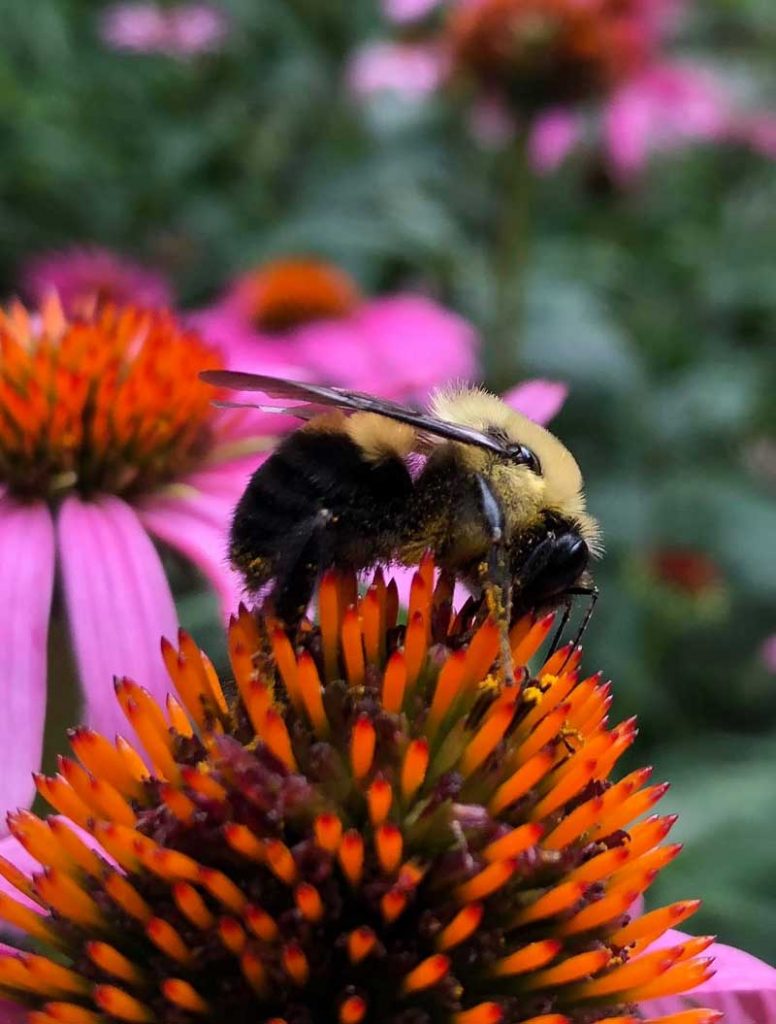Out in the summertime sun, all kinds of insects are flying in the air around us or moving on the ground below our feet. Warmer temperatures invite these creatures, and humans, outside where sometimes it becomes not as easy to coexist. When we see a bee or wasp come near us, it can be extremely hard to stand still and resist the urge to swat it. However, being cautious of bees and wasps is important because honeybees are not the only essential pollinators we need to protect.
Here are some other bees and wasps that we need to watch out for and help support when we are outside this summer:
Bumble Bee
These very hairy bees are excellent at pollinating certain plants, such as tomatoes, and they are effective in greenhouses for pollinating other vegetables. They can sting more than once, but they are generally not aggressive. Bumble bees usually only sting if their nest is disturbed.
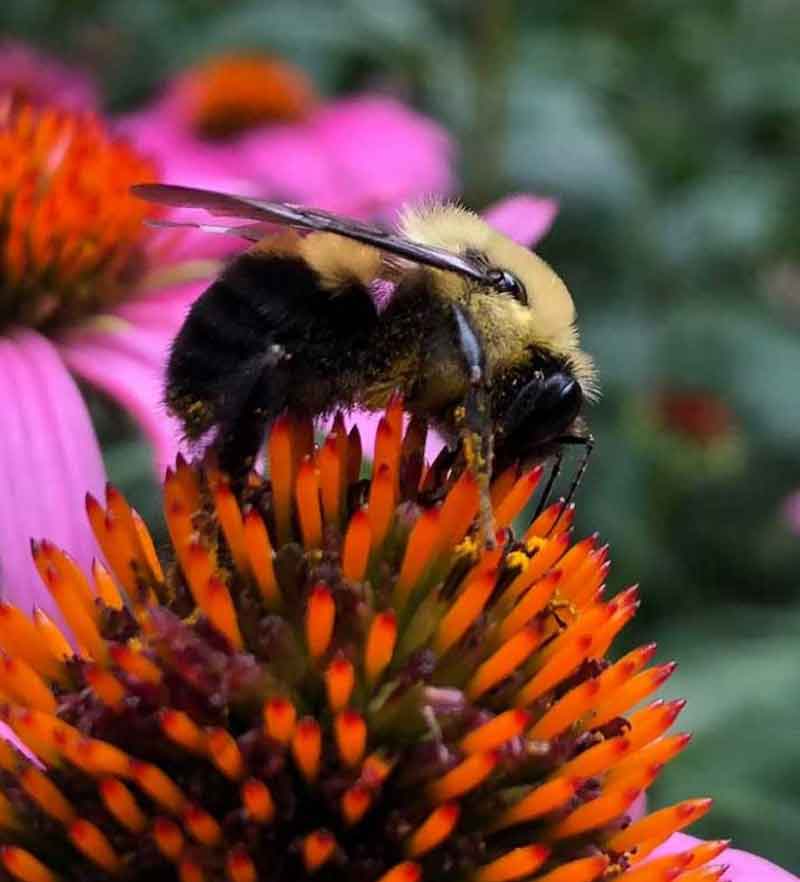

They are also one of the largest bees that live in Wisconsin, and our state has about 20 different species of them. Their hives are often found underground, but also in spaces in buildings, compost piles, hay bales and similar spots above ground in yards.
Carpenter Bee
There are just a few species of carpenter bees in Wisconsin, but they’re actually quite common. The males can act aggressively, but they do not have stingers, so they can’t sting. Carpenter bees are solitary bees, so they do not live in hives, but rather they bore holes in wood to make nests for their young. They have dark metallic bodies.
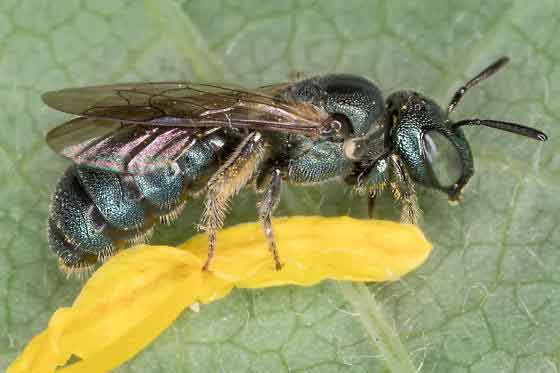

Sweat Bee
The sweat bee gets its name from the fact that they are attracted to the salt in human sweat. These creatures are important to protect as well because they eat nectar and pollen from flowers. Their metallic green bodies sure stand out during Wisconsin summers. Sweat bees are considered pretty docile, but they do typically sting when they are disturbed, such as when they are brushed off your body – luckily its sting is not as painful as other bee stings!
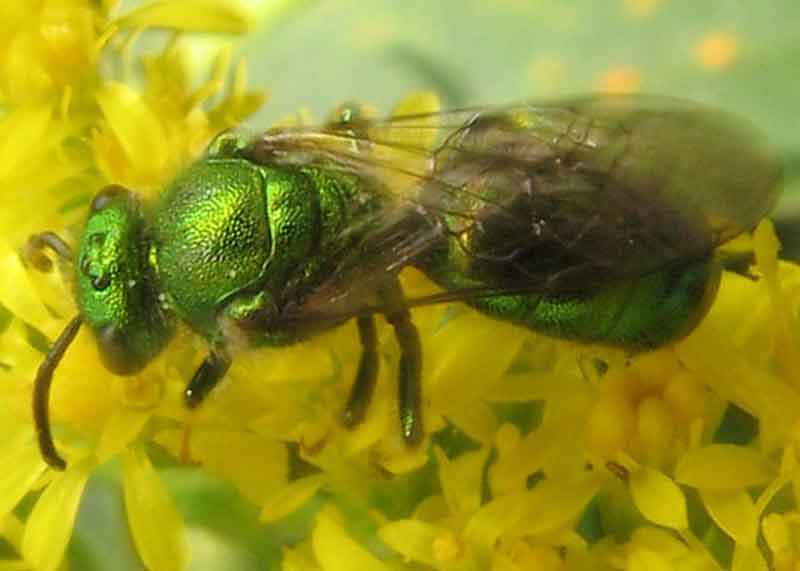

Paper Wasps
Wasps can sometimes be difficult to coexist with because they are attracted to the sugars and carbohydrates in food we typically enjoy at gardens, picnic spots and cookout areas. Because paper wasps can sting more than once and can become more aggressive, people should try to take measures that minimize the insect’s attention.
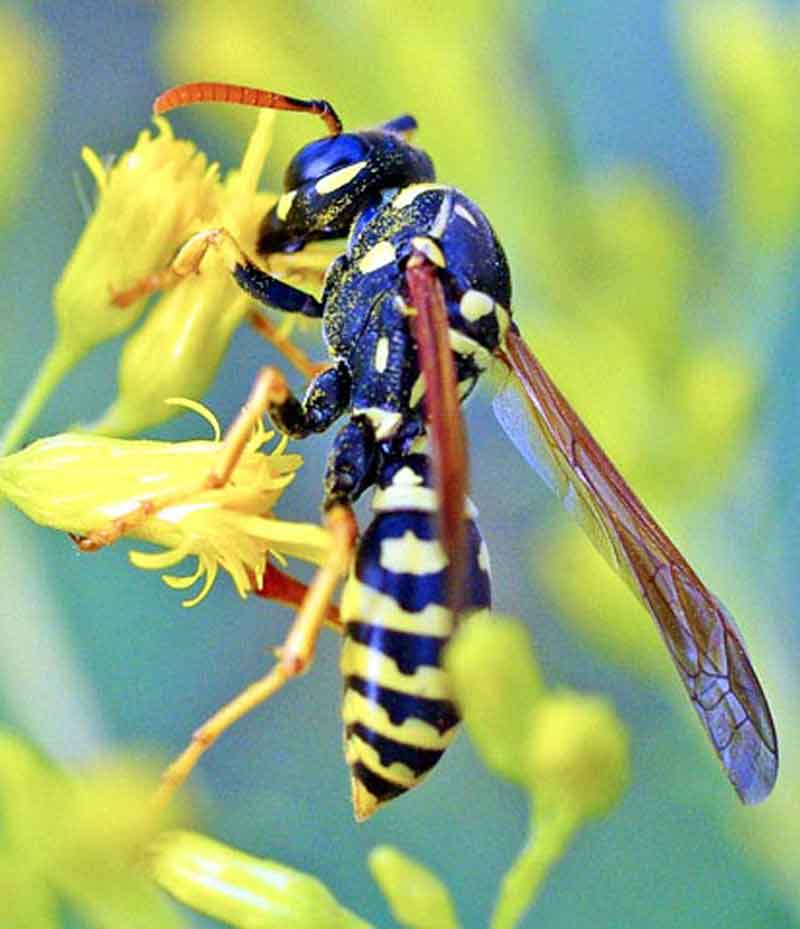

Harvesting fruits like grapes, apples and raspberries early in the morning when wasps are less active, and disposing of garbage in bins with tight-fitting lids are ways to avoid wasps. Wasps hunt flies and young insects that damage crops and they also are important pollinators, so wasp nests should not be exterminated if they are not close to or pose an immediate threat to humans.
When something with a stinger comes near you, it can be extremely hard not to defend yourself. It’s important to remember, though, that most bees and wasps only harm humans when they are attacked. Leaving these pollinators to their pollinating duties will help us to survive alongside the creatures as they save and support our ecosystem.
Sources


